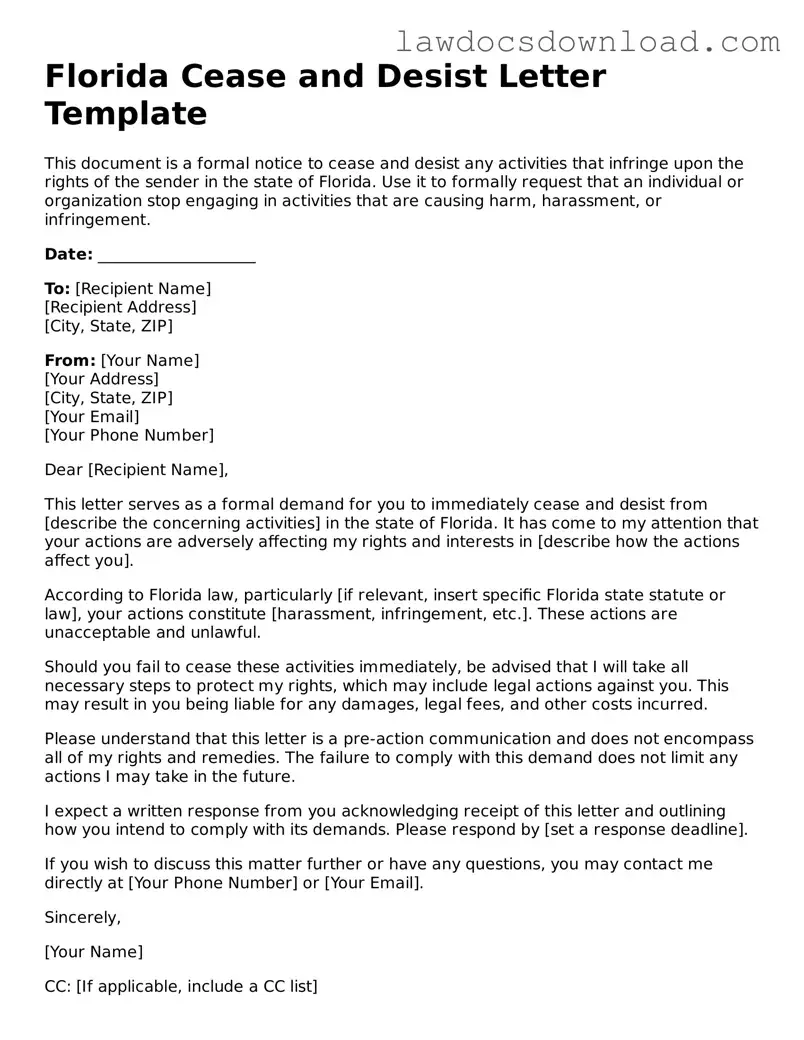Legal Florida Cease and Desist Letter Form
The Florida Cease and Desist Letter form is a legal document used by individuals or entities to formally request that another party stop a specified action or behavior that is deemed harmful or illegal. This document serves as an initial step to potentially resolve disputes without resorting to litigation. It outlines the complainant's concerns and the legal bases for those concerns, providing a clear message about the desired cessation of the problematic behavior.
Launch Cease and Desist Letter Editor Here

Legal Florida Cease and Desist Letter Form
Launch Cease and Desist Letter Editor Here

Launch Cease and Desist Letter Editor Here
or
Free Cease and Desist Letter
Get this form done in minutes
Complete your Cease and Desist Letter online and download the final PDF.